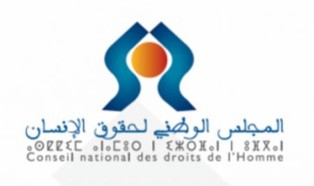In its preliminary conclusions on the two trials, the CNDH expressed its "deep concern about the treatment of cases of sexual violence in our society, which is contrary to human rights principles, values and culture".
Regarding the two cases, the CNDH noted the circulation of numerous erroneous and unverified information, particularly on social networks, and reiterated its recommendation to criminalize defamation, discrimination and incitement to hatred and violence, as well as its recommendation on the establishment of an appropriate legal framework to combat disinformation and "fake news".
It recalled that, as the preamble to the Constitution and Article 26 of the International Covenant on Civil Rights emphasize, no one may be discriminated against or persecuted because of his or her gender, identity, social origin or opinion, in particular for the purpose of intimidation or to force him or her into silence, insisting that neither the profession, nor the notoriety, nor the relations, nor even the opinions of the persons concerned, can constitute, on their own, elements for the prosecution or the defense of crimes and/or misdemeanours, just as they cannot in any way call into question the principle of equality of citizens before the law guaranteed by Article 6 of the Constitution.
The CNDH invited the judiciary to work to ensure that the international provisions ratified by Morocco prevail, where it deems appropriate, pending the bringing of the Kingdom's laws into line with international standards and the provisions of the Constitution, as set out in its preamble, recommended that it be allowed to attend in camera hearings of the trials under its observation and recalled its recommendation that the law organizing the Royal Gendarmerie be brought into line with the provisions of the Constitution and international standards on the signing of minutes.
The Council also reiterated the recommendation mentioned in its annual report for the year 2020 regarding the need for lawyers to adhere to the principles of human rights and fundamental freedoms recognized by national and international laws, and to act in accordance with the law, international standards and rules of professional conduct, as recalled in the basic Principles on the role of lawyers.
It also recommended that the law establishes the possibility of an independent judicial review of all decisions that deprive people of their liberty, in accordance with international standards on the subject, and reiterated its recommendation that Parliament adopt the reform of the penal code as soon as possible, enshrining the principles of legitimacy, necessity, proportionality and foreseeability of laws. In addition, it reiterated its recommendations to amend Chapter VIII of the Penal Code, in particular Articles 468 and 489-493, in addition to its recommendation to make consent the basis of legislation on sexual offences and crimes, as well as its call to make the effective fight against impunity for the perpetrators of sexual assault and violence a constant deterrent.
Regarding the two cases, the CNDH noted the circulation of numerous erroneous and unverified information, particularly on social networks, and reiterated its recommendation to criminalize defamation, discrimination and incitement to hatred and violence, as well as its recommendation on the establishment of an appropriate legal framework to combat disinformation and "fake news".
It recalled that, as the preamble to the Constitution and Article 26 of the International Covenant on Civil Rights emphasize, no one may be discriminated against or persecuted because of his or her gender, identity, social origin or opinion, in particular for the purpose of intimidation or to force him or her into silence, insisting that neither the profession, nor the notoriety, nor the relations, nor even the opinions of the persons concerned, can constitute, on their own, elements for the prosecution or the defense of crimes and/or misdemeanours, just as they cannot in any way call into question the principle of equality of citizens before the law guaranteed by Article 6 of the Constitution.
The CNDH invited the judiciary to work to ensure that the international provisions ratified by Morocco prevail, where it deems appropriate, pending the bringing of the Kingdom's laws into line with international standards and the provisions of the Constitution, as set out in its preamble, recommended that it be allowed to attend in camera hearings of the trials under its observation and recalled its recommendation that the law organizing the Royal Gendarmerie be brought into line with the provisions of the Constitution and international standards on the signing of minutes.
The Council also reiterated the recommendation mentioned in its annual report for the year 2020 regarding the need for lawyers to adhere to the principles of human rights and fundamental freedoms recognized by national and international laws, and to act in accordance with the law, international standards and rules of professional conduct, as recalled in the basic Principles on the role of lawyers.
It also recommended that the law establishes the possibility of an independent judicial review of all decisions that deprive people of their liberty, in accordance with international standards on the subject, and reiterated its recommendation that Parliament adopt the reform of the penal code as soon as possible, enshrining the principles of legitimacy, necessity, proportionality and foreseeability of laws. In addition, it reiterated its recommendations to amend Chapter VIII of the Penal Code, in particular Articles 468 and 489-493, in addition to its recommendation to make consent the basis of legislation on sexual offences and crimes, as well as its call to make the effective fight against impunity for the perpetrators of sexual assault and violence a constant deterrent.








 Le nouveau pouvoir Syrien face à la menace de l’Etat islamique
Le nouveau pouvoir Syrien face à la menace de l’Etat islamique